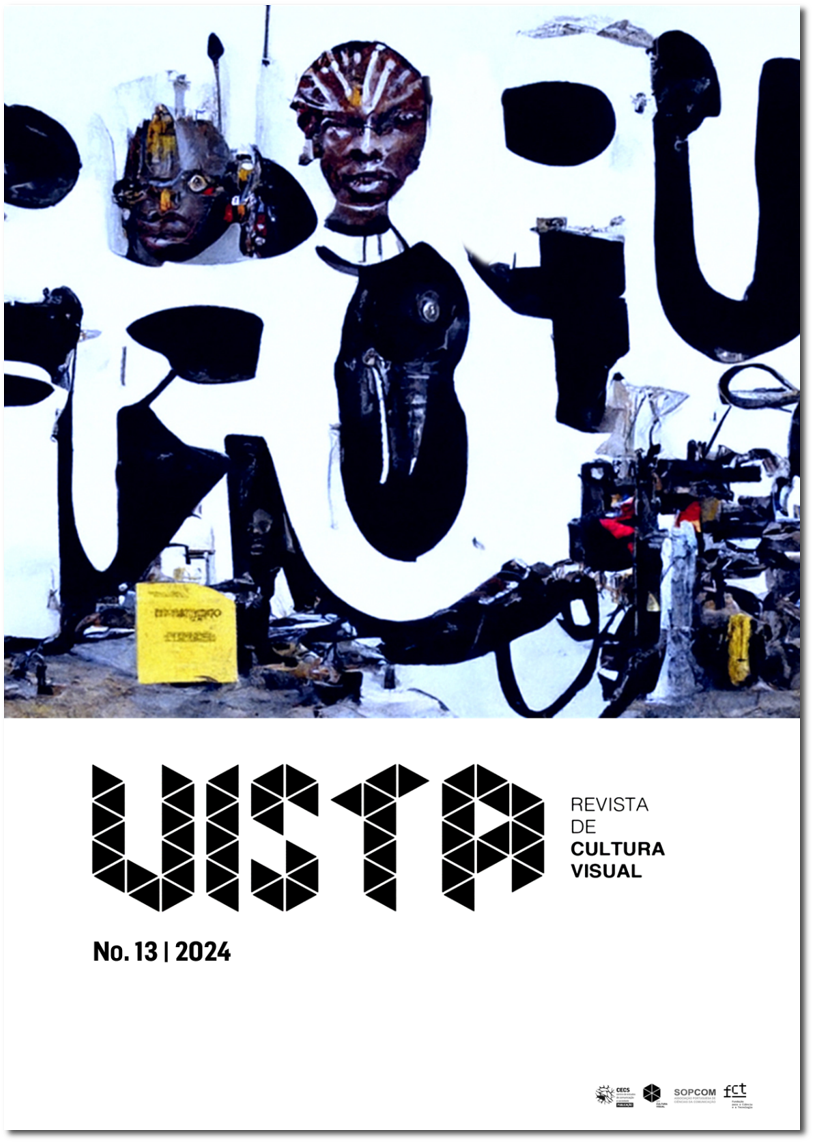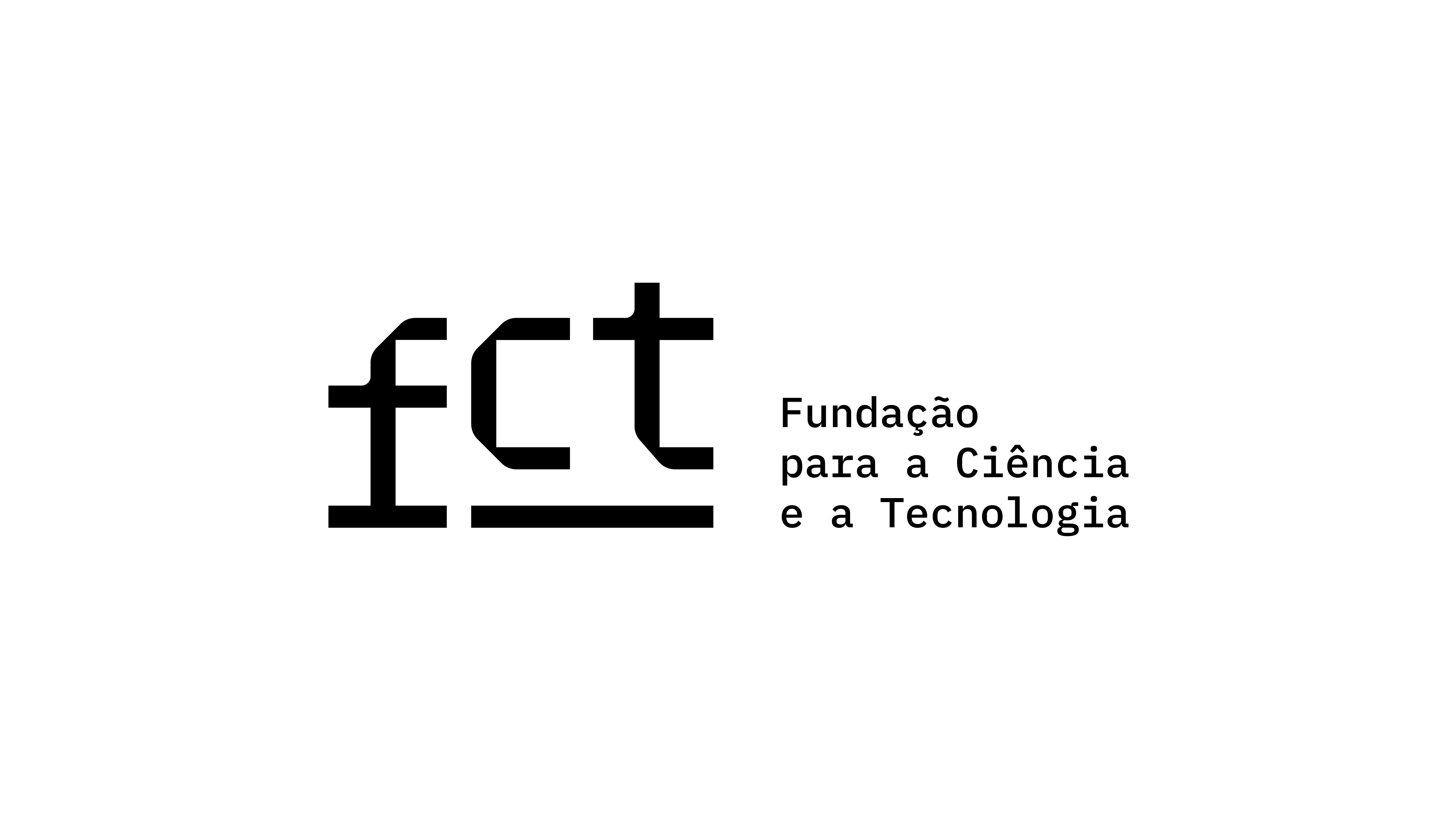A Tendency to Forget: Repairing (the) Past to Resist Forgetting. Interview With Artist Ângela Ferreira
DOI:
https://doi.org/10.21814/vista.5524Abstract
During the "Summer School in Communication and Culture for Development", held at the University of Minho in 2020, the researchers who conducted this interview were engaged in the project Cultures, Past & Present (2018–2022). Specifically, their focus was on understanding the history, memory, and narratives surrounding ethnology museums in Portugal and Mozambique. Margot Dias' groundbreaking contributions in integrating ethnographic film into studies with the Makonde people of Mozambique naturally emerged as a central aspect of the research, connected with Jorge Dias' major role in establishing the Museum of Ethnology in Lisbon. As the research progressed, two researchers and artists emerged who had significant engagement with the Dias couple's ethnographic missions, particularly focusing on Margot's role, albeit with very different approaches: anthropologist and filmmaker Catarina Alves Costa, a professor at the Faculty of Social and Human Sciences at Nova University of Lisbon, and artist Ângela Ferreira, a professor at the Faculty of Fine Arts at the University of Lisbon. The exploratory study into Ângela Ferreira's artistic career soon highlighted the importance of engaging with this creator. It was within this context that the interview presented here was conducted, spanning two sessions on November 12 and 19, 2020, yet retaining the relevance of the themes and issues discussed. In fact, these topics and concerns are very much on the agenda, especially considering the recent momentum given to the debate on historical reparations in Portugal after the President of the Republic, Marcelo Rebelo de Sousa, expressed his endorsement for such reparations to the former colonies during a meeting with foreign journalists on April 23, 2024.
Downloads
References
Almeida, V., Zanete, R. F., & Macedo, L. (2023). Autoria em Margot Dias pela lente revivescente da pós-memória. ex æquo, (47), 117–136. https://doi.org/10.22355/exaequo.2023.47.09
Bhabha, H. K. (1998). O local da cultura (M. Ávila, E. Reis, & G. Gonçalves, Trads.). Editora UFMG. (Trabalho original publicado em 1994)
Benjamin, W. (1987). Magia e técnica, arte e política (S. P. Rouanet, Trad.). Brasiliense. (Trabalho original publicado em 1936)
Colonialismo português foi projeto de opressão e submissão de muitos povos. (2024, 28 de abril). Lusa. https://www.lusa.pt/article/2024-04-28/42762574/colonialismo-portugu%C3%AAs-foi-projeto-de-opress%C3%A3o-e-submiss%C3%A3o-de-muitos-povos
Derrida, J. (1996). Archive fever: A Freudian impression. University of Chicago Press.
Dias, J. (1998). Os macondes de Moçambique. Vol. I – Aspectos históricos e económicos. Comissão Nacional para as Comemorações dos Descobrimentos Portugueses e Instituto de Investigação Científica Tropical. (Trabalho original publicado em 1964)
Dias, J., & Dias, M. (1970). Os macondes de Moçambique. Vol. III – Vida social e ritual. Junta de Investigações do Ultramar.
Dias, M. (2016). Margot Dias – Filmes etnográficos (1958-1961) [Filme]. Cinemateca, Museu Nacional de Etnologia.
Ferreira, Â. (2016). O discurso artístico como dispositivo de inovação na discussão do após pós-colonialismo [Tese de doutoramento, Universidade de Lisboa]. Repositório da Universidade de Lisboa. https://repositorio.ul.pt/handle/10451/25112
Ferreira, Â. (2018). A Tendency to Forget. In Coletivo Suspended Spaces (Ed.), Suspended places (Vol. 4, pp. 239–255). ACD Print.
Ferro, M. (2004). Comment on raconte l’histoire aux enfants à travers le monde (nouvelle édition revue). Éditions Payot. (Trabalho original publicado em 1981)
Hobsbawm, E. J. (2014). Tempos de rutura: Cultura e sociedade no século XX (M. Marques, Trad.). Divina Comédia. (Trabalho original publicado em 2012)
Laboratório de Curadoria. (2017, 5 de junho). Entrevista Angela Ferreira Magical Land [Vídeo]. YouTube. https://www.youtube.com/watch?v=mguwfwiSTmM
Marmeleira, J. (2015, 10 de fevereiro). A descolonização continua. Público. https://www.publico.pt/2015/10/02/culturaipsilon/noticia/a-descolonizacao-continua-1709488
Mbembe, A. (2014). Crítica da razão negra (M. Lança, Trad.). Antígona. (Trabalho original publicado em 2013)
Mignolo, W. (2017). Desafios decolonais hoje. Revista Epistemologias do Sul, 1(1), 12–32.
Oliveira, A. B. de. (2016). Descolonização em, de e através das imagens de arquivo “em movimento” da prática artística. Comunicação e Sociedade, 29, 107–129. https://doi.org/10.17231/comsoc.29(2016).2412
Oliveira, C. M. (2019). O massacre de Mueda (1960) e a constituição das narrativas nacionais em Moçambique (1962–1986) [Dissertação de mestrado, Universidade Federal de Minas Gerais]. Repositório da Universidade Federal de Minas Gerais. http://hdl.handle.net/1843/30020
Pereira, H. M. (2023, 5 de maio). Miriam Makeba: A pós-memória da luta pela liberdade na obra de Ângela Ferreira. Zet Gallery. https://zet.gallery/blog/pt/miriam-makeba-pos-memoria-da-luta-pela-liberdade-na-obra-angela-ferreira/
Ribeiro, M. C. (2020). Viagens no contemporâneo–pós-colonialismo, cosmopolitismo e programação. Revista Mulemba, 12(22), 127–147. https://doi.org/10.35520/mulemba.2020.v12n22a39821
Said, E. (2011). Cultura e imperialismo (D. Bottmann, Trad.). Companhia das Letras. (Trabalho original publicado em 1993)
Sanches, M. R. (Ed.). (2011). Malhas que os impérios tecem. Textos anticoloniais, contextos pós-coloniais. Edições 70.
Sandqvist, G. (2007). Sculpture revisited. In J. Bock (Ed.), Maison tropicale, Ângela Ferreira (pp. 20–34). Instituto das Artes/Ministério da Cultura.
Spivak, G. C. (1999). A critique of postcolonial reason. Toward a history of the vanishing present. Harvard University Press.
Walker. (s.d.). Kara Walker. Retirado a 6 de novembro de 2023, de https://walkerart.org/collections/artists/kara-walker
West, H. G. (2006). Invertendo a bossa do camelo. Jorge Dias, a sua mulher, o seu intérprete e eu (T. R. Queiroz, Trad.). In M. R. Sanches (Ed.), Portugal não é um país pequeno: Contar o império na pós-colonialidade (pp. 141–190). Cotovia.
Downloads
Published
How to Cite
Issue
Section
License
Copyright (c) 2024 Viviane Almeida, Lurdes Macedo, Renata Flaiban Zanete

This work is licensed under a Creative Commons Attribution 4.0 International License.
Authors own the copyright, providing the journal with the right of first publication. The work is licensed under a Creative Commons Attribution 4.0 International License.









